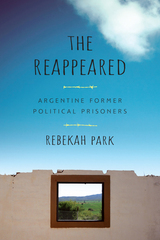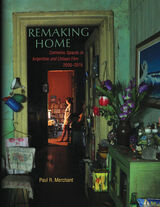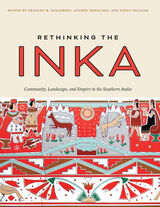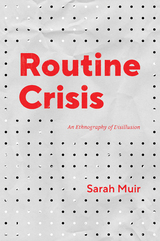5 start with R start with R


Houses, in the Argentine and Chilean films of the early twenty-first century, provide much more than a backdrop to on-screen drama. Nor are they simply refuges from political turmoil or spaces of oppression. Remaking Home argues that domestic spaces are instead the medium through which new, fragile common identities are constructed. The varied documentary and fiction films analyzed here, which include an early work by Oscar winner Sebastián Lelio, use the domestic sphere as a laboratory in which to experiment with narrative, audiovisual techniques, and social configurations. Where previous scholarship has focused on the social fragmentation and political disillusionment visible in contemporary film, Remaking Home argues that in order to understand the political agency of contemporary cinema, it is necessary to move beyond deconstructive critical approaches to Latin American culture. In doing so, it expands the theoretical scope of studies in Latin American cinema by finding new points of contact between the cultural critique of Nelly Richard, the work of Bruno Latour, and theories of new materialism.

2023 Book Award, Society for American Archaeology
A dramatic reappraisal of the Inka Empire through the lens of Qullasuyu.
The Inka conquered an immense area extending across five modern nations, yet most English-language publications on the Inka focus on governance in the area of modern Peru. This volume expands the range of scholarship available in English by collecting new and notable research on Qullasuyu, the largest of the four quarters of the empire, which extended south from Cuzco into contemporary Bolivia, Argentina, and Chile.
From the study of Qullasuyu arise fresh theoretical perspectives that both complement and challenge what we think we know about the Inka. While existing scholarship emphasizes the political and economic rationales underlying state action, Rethinking the Inka turns to the conquered themselves and reassesses imperial motivations. The book’s chapters, incorporating more than two hundred photographs, explore relations between powerful local lords and their Inka rulers; the roles of nonhumans in the social and political life of the empire; local landscapes remade under Inka rule; and the appropriation and reinterpretation by locals of Inka objects, infrastructure, practices, and symbols. Written by some of South America’s leading archaeologists, Rethinking the Inka is poised to be a landmark book in the field.

Anthropologist Sarah Muir offers a cogent meditation on the limits of critique at this historical moment, drawing on deep experience in Argentina but reflecting on a truly global condition. If we feel things are being upended in a manner that is ongoing, tumultuous, and harmful, what would we need to do—and what would we need to give up—to usher in a revitalized critique for today's world? Routine Crisis is an original provocation and a challenge to think beyond the limits of exhaustion and reimagine a form of criticism for the twenty-first century.

READERS
Browse our collection.
PUBLISHERS
See BiblioVault's publisher services.
STUDENT SERVICES
Files for college accessibility offices.
UChicago Accessibility Resources
home | accessibility | search | about | contact us
BiblioVault ® 2001 - 2024
The University of Chicago Press









